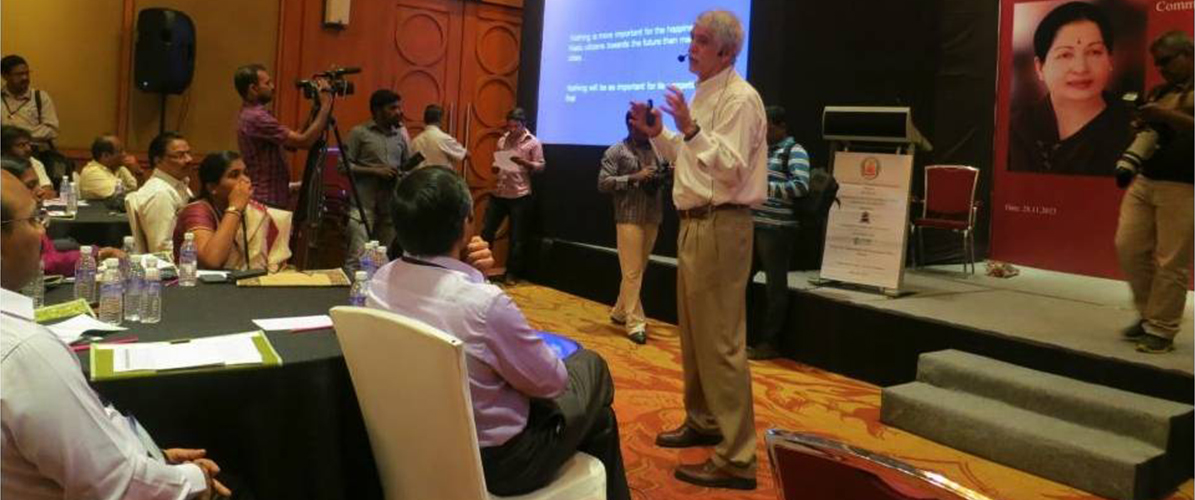As the effects of rapid economic development and urbanisation place an ever greater strain on transport networks across the country, the traditional practices used to meet the rising demand are becoming increasingly unsustainable. The costs associated with a growing automobile fleet and increasing road network capacity include air and noise pollution, accidents, congestion, social inequality, and climate change. Transport currently causes 23 per cent of energy-related CO2 emissions, and without changes in policy, is projected to grow to 80 per cent by 2050.
ITDP India played an important role in the drafting of India’s National Urban Transport Policy in 2006, ensuring that the document emphasised the need for a focus on “moving people, not vehicles.” More recently, ITDP has collaborated with the Indian Ministry of Urban Development (MOUD) to provide technical advice and facilitate the adoption of strong urban development and transport standard under the National Mission on Sustainable Habitat. ITDP is working with the Ministry and the Institute of Urban Transport to update National Urban Transport Policy and develop stronger guidelines for Comprehensive Mobility Plans. These guidance documents will help set a country-wide agenda to promote cleaner and more efficient transport.
Since urban transport is a state prerogative in India, ITDP is working closely with the state government of Tamil Nadu to facilitate the creation and adoption of a state urban transport policy. The policy aims to ensure that funding streams support sustainable transport projects and that funded projects meet minimum performance and cost effectiveness standards. ITDP is also helping the state to develop model terms of reference and evaluation frameworks for transport projects and create a project evaluation methodology for evaluation of state-level funding alternatives.
At the city level, ITDP is working closely with many Indian cities in setting a vision as well as specific and achievable goals for introducing sustainable public transport systems. These interactions have helped cities such as Chennai, Coimbatore, Pimpri Chinchwad, and Nashik develop sustainable transport budget plans. ITDP is also helping cities such as Chennai and Pune in the formulation of non-motorised transport policies that will guide the implementation of high quality pedestrian and cycle facilities.
By working on policies at the national, state and city levels, ITDP helps to support, develop, and expand the reach of sustainable transport reforms across the country.










